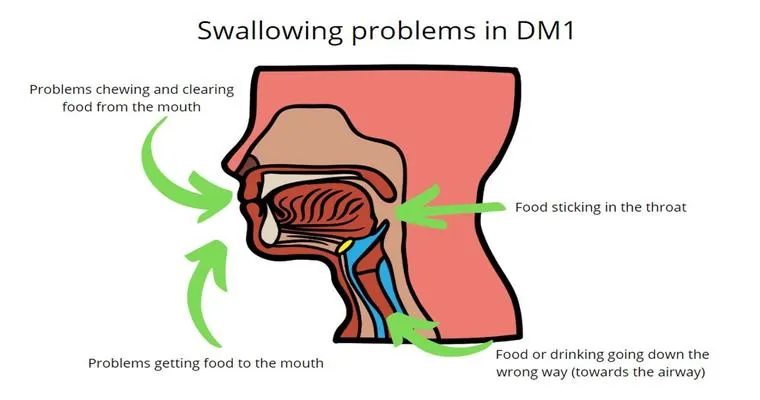"Chewing and swallowing problems" are significant issues that can impact an individual's quality of life. These difficulties can arise from various conditions, including neurological disorders, oral health issues, and aging. Understanding the causes, symptoms, and treatment options for these challenges is essential for both patients and caregivers.
What Are Chewing and Swallowing Problems?
Chewing, also known as mastication, is the process of breaking down food into smaller pieces to facilitate swallowing. Swallowing, or deglutition, involves a complex sequence of muscle contractions that move food from the mouth to the stomach. When individuals experience "chewing and swallowing problems", they may face various symptoms, such as difficulty in biting or chewing food, choking, coughing during meals, or a sensation of food being stuck in the throat.
Causes of Chewing and Swallowing Problems
Several factors can contribute to "chewing and swallowing problems". Some of the most common causes include:
1. "Neurological Disorders": Conditions such as stroke, Parkinson's disease, and multiple sclerosis can affect the nerves and muscles involved in chewing and swallowing.
2. "Dental Issues": Poor oral health, missing teeth, or ill-fitting dentures can make it difficult for individuals to chew food properly.
3. "Aging": As people age, they may experience a natural decline in muscle strength and coordination, leading to an increased risk of swallowing difficulties.
4. "Medical Conditions": Gastroesophageal reflux disease (GERD), esophageal strictures, and certain cancers can also contribute to swallowing problems.
Symptoms to Watch For
Awareness of the symptoms associated with "chewing and swallowing problems" is crucial for early intervention. Common signs include:
Difficulty chewing food, leading to unchewed pieces being swallowed
Frequent coughing or choking while eating or drinking
Pain or discomfort while swallowing
A feeling of food being lodged in the throat
Unexplained weight loss or nutritional deficiencies
Diagnosis and Assessment
If you or a loved one is experiencing symptoms of "chewing and swallowing problems", it is essential to seek professional help. A healthcare provider may conduct a thorough assessment, which could include:
A physical examination of the mouth and throat
A review of medical history and medications
Swallowing assessments, such as a Modified Barium Swallow Study
Treatment Options
Treatment for "chewing and swallowing problems" will depend on the underlying cause. Some common approaches include:
1. "Therapy": Speech-language pathologists can provide swallowing therapy to improve muscle coordination and swallowing techniques.
2. "Dietary Modifications": Adjusting the texture of foods (e.g., pureed or soft diets) can help individuals manage their swallowing difficulties more effectively.
3. "Dental Care": Addressing dental issues, such as fitting dentures or treating gum disease, can improve chewing ability.
4. "Medications": In some cases, medications may be prescribed to alleviate symptoms related to underlying conditions.
Conclusion
"Chewing and swallowing problems" can significantly impact daily life, but with the right diagnosis and treatment, many individuals can regain their ability to enjoy meals safely. If you or someone you know is struggling with these issues, consult a healthcare professional to explore the best options for management and support. Early intervention can lead to improved outcomes and a better quality of life.





